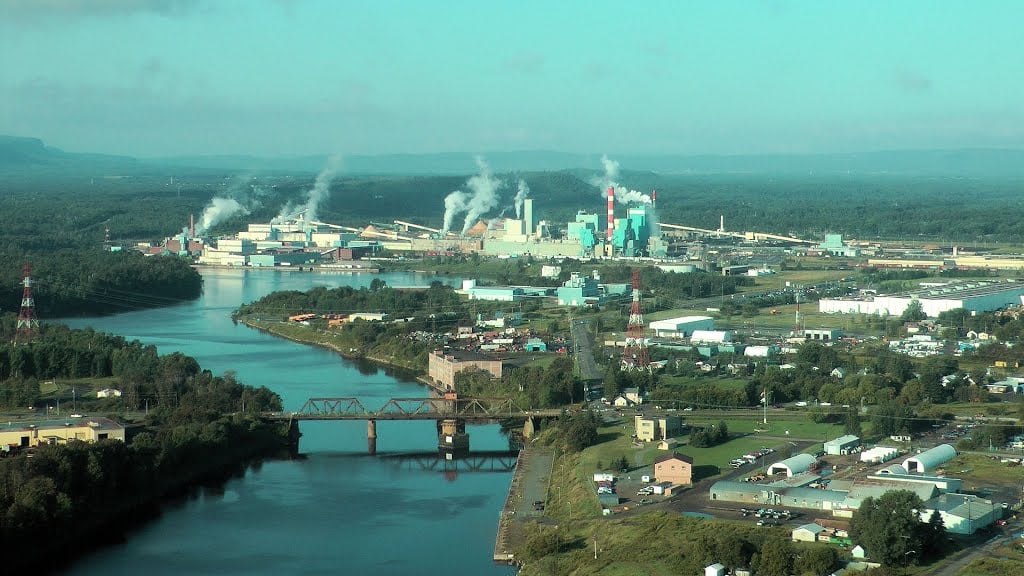3 min read
New Thunder Bay Bio-Refinery Exemplifies Forest Industry Partnerships, Innovation
John Greene
:
August 31, 2016

“Wood is more than the tree,” said FPInnovations president and chief executive officer Pierre Lapointe at a recent press conference announcing a new bio-refinery in Thunder Bay, Ontario. “Wood is cellulose, it’s hemicellulose, it’s lignin. We have not extracted at each step of using a tree the most powerful value. Now we’re doing it at all steps, including going to the nano scale of the fibre.”
Unlocking the potential uses for wood raw materials in a growing biobased economy is creating a number of new opportunities for the forest products sector. As industry leaders, corporations and global governing bodies seek to expand the use of biobased products—from consumer to industrial goods—the role of forest raw materials in the production of these products will be significant.
These types of biobased products offer tremendous value on the market, as many of them represent a more environmentally-friendly alternative to oil-based resources, and they are typically more cost-effective. Lapointe noted that a number of regional mining companies have already expressed interest in the biobased products that FPInnovations will create, saying “Those will be very big markets.”
New Products, Existing Infrastructure
FPInnovations’s new bio-refinery plant will be paid for in part by $4.5 million in government funds from the province of Ontario, and $3.5 million from Resolute Forest Products, who will host the actual facility at the Resolute pulp and paper mill in Thunder Bay. The total cost of the project, which includes research over the next three years, is expected to be $22 million. Lapointe said that the new venture will employ between five and 10 people but once the research and development stage is complete, a much bigger production facility could provide many more jobs.
“The project will help make the pulp and paper industry in Ontario more profitable and sustainable, by moving away from newsprint to other products,” said Pedram Fatehi, the industrial research chair in green chemicals and processes at Lakehead University. "[The industry is] struggling because their main product was newsprint," he added. "Newsprint consumption is very low now. So they want to convert their current process to something that is more profitable.”
The pilot plant is just the beginning for FPInnovations. Ontario Minister of Municipal Affairs, Bill Mauro, said the province realized during the early 2000’s forestry collapse that the industry likely wasn’t going to rebound as it had in the past, and diversification was key. “We realized we had to do something different, so that we could get other value-added products out of forestry biomass,” he said.
 Resolute Forest Products Thunder Bay facility in Ontario, Canada.
Resolute Forest Products Thunder Bay facility in Ontario, Canada.
Minister of Northern Development and Mines Michael Gravelle said the pilot plant has potential to grow and also to attract other innovators and companies to Thunder Bay. “We can grow and build with innovation such as this. Innovation is the key. They’ve got people waiting for the product and that’s pretty exciting. We saw the tremendous potential to create jobs, tremendous potential to grow the economy and have been very impressed with the work we’ve been doing for years with the Centre for Research and Innovation in the Bio-Economy,” said Gravelle.
Innovative Solutions
Forward-thinking forest products organizations are innovating to take advantage of these new opportunities. For instance, we recently reported on the LignoTech partnership between Rayonier Advanced Materials and Borregaard—a venture that will produce biochemicals derived from wood lignin on a large scale. Wood lignin can also be used to develop products used in the construction, automotive, tire, food & beverage, water treatment and mining industries among others.
Lapoint said, “Today, what we have announced is the fact that we will able to produce in Thunder Bay two new products, the sugar stream C5 and C6, which could be used by the petrochemical industry in Sarnia, Ontario, and h-lignan, which is the second product which could be used in animal feed stock and… for mine tailings and wastewater treatment.” To start, the goal is to produce two tons of each product per day.
“Once we have secured the update of the process, then we’ll go to the commercial phase and then we’re talking about a few hundred million [annual tons] and a bigger number of jobs,” Lapointe said. Thunder Bay is a natural location and has “a lot of advantages,” he added.
Resolute is already using the organization’s technology, and the city’s geographic location makes it ideal to ship the finished product to Sarnia via the Great Lakes. “It’s the perfect mix of quality and opportunity,” Lapointe said. While he hopes the plant will be operational within the next 12 to 14 months, he acknowledged it will more likely take around 18 months.
“We’ve said for some time that bio-refining and the bio-economy is going to be the future very much of the forestry sector,” Gravelle added. “While we look forward to maintaining the forestry sector as it is, it will never be the same. But we can grow and build with innovations such as this.”





